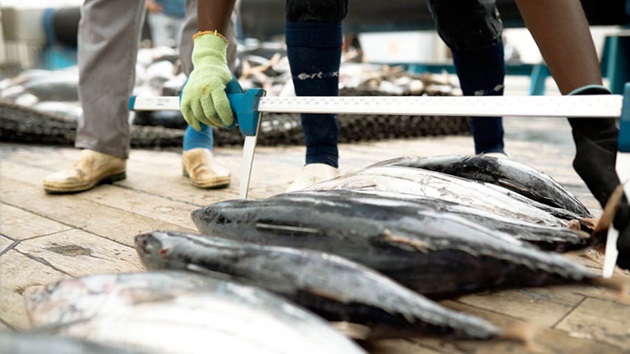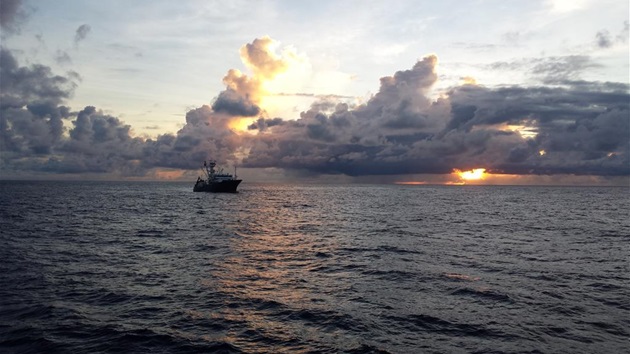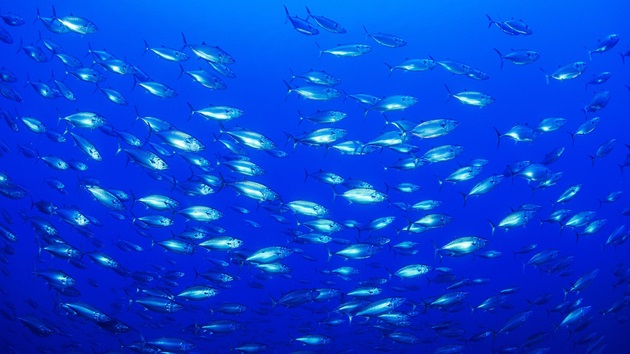When Kepa Echevarria set out to transform his tuna fishery into one that was certified as sustainable, he thought it was a just and obvious thing to do for the planet and the future of his business.
“Being sustainable is a decision. You can decide to do it, or you can decide not to do it… but to do it is the only way,” says Echevarria, CEO of family-owned Spanish fishery, Echebastar.
Little did he know that he would spend the next 12 years on one of the longest and hardest journeys of his life, innovating and reshaping his fishery before it could be classed as certified sustainable.
An MSC film, ‘The Decision: A Tuna Fishery’s Quest for Sustainability’, tells the story of Echevarria’s journey, one that many thought would not be possible.
The Decision: A tuna fishery’s quest for sustainability
It shows how his company, Echebastar, became the world’s first large scale tuna fishery using fish aggregating devices (FADs) to be certified as sustainable.
It took Echebastar two certification attempts to pass all twenty-eight of the assessment criteria and reach the ‘global best practice levels’ needed to meet the Marine Stewardship Council’s Fisheries Standard for environmental sustainability.
What made the quest particularly arduous was the fishery’s use of drifting fish aggregating devices (FADs) to target their catch.
FADs take advantage of the natural phenomenon of small marine life being attracted to floating objects, which in turn attract target species such as tuna. Fishers use FADs to increase their fishing efficiency and are widely used across the industry.
However, as the film shows, artificial FADs can be destructive because historically, non-biodegradable materials have been used. Furthermore, as well as tuna, FADs can attract endangered, threatened, and protected species (ETPs) such as sharks, turtles, and rays.
The film talks openly about the complications and complexities of a FAD fishery attempting to become certified as sustainable. It shows how fishing practices had to be transformed: materials have to be biodegradable, the removal of entangling nets, unwanted bycatch must be minimised and ETP species returned to the oceans unharmed as far as possible.
Alberto Martín, Senior Fisheries Outreach Manager at the MSC recalls: “People really didn’t believe that fishing on FADs could be done in a sustainable way... a FAD fishery had never been certified before.”
But Echebastar were committed to their mission and demonstrated that if done properly, large-scale FAD fisheries can minimise impacts and be sustainable. It has become a trailblazer for other FAD fisheries and has incentivised change and transformation across the sector.
MSC certified fisheries are some of the best-managed in the world and Echebastar is among the 19% of world’s fisheries that are engaged* with the MSC.
As Martín says, “When a fishery such as Echebastar gains certification they also engage into a huge commitment of improvements.”
‘The Decision’ shows that, at a time when the world’s fish stocks are under pressure from overfishing, not committing to sustainability is a decision the planet cannot afford to make.
Vote in the Smiley Charity Film Awards
Alberto Martín, Senior Fisheries Outreach Manager at the MSC recalls: “People really didn’t believe that fishing on FADs could be done in a sustainable way... a FAD fishery had never been certified before.”
But Echebastar were committed to their mission and demonstrated that if done properly, large-scale FAD fisheries can minimise impacts and be sustainable. It has become a trailblazer for other FAD fisheries and has incentivised change and transformation across the sector.
MSC certified fisheries are some of the best-managed in the world and Echebastar is among the 19% of world’s fisheries that are engaged* with the MSC.
As Martín says, “When a fishery such as Echebastar gains certification they also engage into a huge commitment of improvements.”
‘The Decision’ shows that, at a time when the world’s fish stocks are under pressure from overfishing, not committing to sustainability is a decision the planet cannot afford to make.



